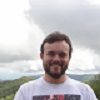Global Environment Challenges team
Find out about the experience and expertise of the people who will be leading and contributing to the programme.
Peter Alexander

Peter Alexander is Director of the Certificate in Global Environment Challenges. He is an interdisciplinary lecturer in Global Food Security jointly with the School of Geosciences and the Global Academy of Agriculture & Food Security. Peter’s research focuses on the interactions within land use and food systems, combining social, economic and environmental aspects. Approaches typically apply data or computationally intensive techniques, such as agent-based modelling, and where necessary use high-performance computing, to improve understanding of the human-natural interactions within these complex systems. His work includes the development a new global agricultural land use and food system model, and other work investigating the current role of diet and waste in global land use and land use change.
Mark Rounsevell

Mark Rounsevell is Professor of Rural Economy and Sustainability within the School of GeoSciences. His research focuses on the effects of environmental change on rural and urban landscapes with an emphasis on the development and application of agent-based, social simulation models. Models are combined with the development of scenarios to explore the response of individuals and society to different environmental change drivers in the future. Mark is also David Kinloch Michie Chair of Rural Economy and Environmental Sustainability; Head of Geography and the Lived Environment Research Institute.
Roslyn Henry

Roslyn is a postdoctoral research fellow within the School of Geosciences. Roslyn’s research focuses on modelling future land use change and food system dynamics specifically questions related to food security and the consequences of land use change on the environment and biodiversity. Roslyn completed her PhD in 2016 at Aberdeen University. Her PhD focused on developing individual based genetically and spatially explicit models to investigate the evolution of dispersal and the consequence of this for eco-evolutionary species range dynamics.
David Reay

David is Professor of Carbon Management and Education within the School of Geosciences. David is the course organiser of the Sustainability and Social Responsibility course. This course explores the concepts of sustainability and social responsibility through a multidisciplinary approach, examining them from a scientific, social, economic, political and artistic viewpoint. This course will investigate the relationship between planetary boundaries, resource consumption and social development, and explore the range of interdisciplinary approaches to address these global challenges. It will also cover the topics of sustainability metrics, personal contributions and sustainable lifestyles, as well as providing an introduction to strategies for stakeholder engagement and communication/education.
Gary Watmough

Gary is the course organiser of the Ecosystem Values and Management course. He is an interdisciplinary lecturer in Land use and Socioecological Systems jointly with the School of Geosciences and the Centre for Sustainable Forests and Landscapes. Gary’s research focuses on developing ways to monitor socioeconomic conditions in rural areas of developing countries using earth observation data. Gary also investigates the potential of remote sensing data for long term monitoring and evaluation of international development projects and ways in which geospatial data can improve overall understanding of the links between ecosystem services and poverty in developing countries. Approaches typically integrate social, economic and environmental data using Geographic Information Systems and Statistical models.
Paula Escobar
Paula is the Programme Administrator.

